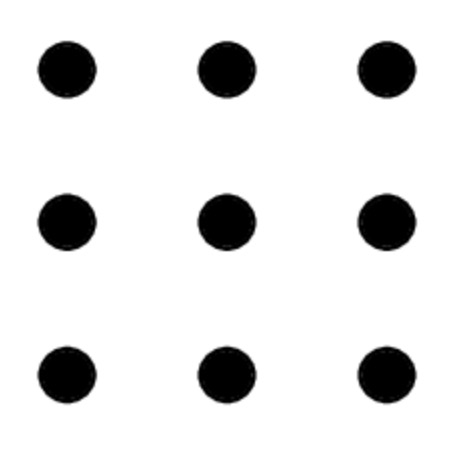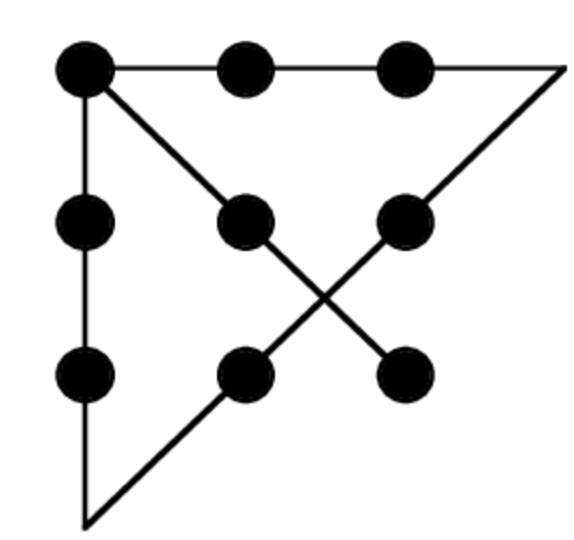Naturalizing "woo"
Growing a scene for pre-paradigmatic wisdom research
Introduction
Growing up, I struggled with intuiting social norms and taking others' perspectives. This led me to over-rely on empiricism, science, and propositional logic to make sense of the world and communicate. One funny consequence of this approach was my attempt to follow Descartes in rebuilding my worldview from a very simple axiom system. This had mixed results.
I broke myself out when I encountered the fuzziness of machine learning, the limitations of formal systems via Gödel's incompleteness theorem, and the physical limits of math imposed by computation.
These concepts broke me out of my rigid frame and opened my eyes to fields that take subjectivity seriously: Jungian psychology, meditation, and various religious traditions. I began exploring these areas, using analogies to computation and math to navigate them and estimate the plausibility of their claims.
This "breaking out" of previous assumptions seems to me to be at the core of what people mean by the word "wisdom".
Wisdom as Embodied Frame Selection
My understanding of wisdom is that it can be described as adaptive and embodied frame selection or construal.
By frame I mean something like a "lens" that filters information to what is relevant to one's current situation (like filters in convolutional neural networks), or an ontology of things onto which incoming information is mapped, or a "way of looking", of paying attention.
By adaptive I mean that it must be appropriate to the problem at hand, and by embodied I mean that it's unconscious - in the same way that you can't reason propositionally before you have an axiom system, there must be some selection process that happens beforehand.
To illustrate what I mean, let's look at the classic 9-dot problem: Connect the dots with four straight lines without lifting the pen.

Most people try and fail at this. Most people will think it's impossible because they assume the lines need to stay within the bounds of the square, when that was not part of the problem statement.

In this case, people were "trapped" by the frame they unconsciously selected. A wiser person would have subconsciously selected a looser frame that allowed the degrees of freedom needed to solve the problem.
The reason we become trapped in frames like this is the same reason we are able to handle so much complexity in the world. We filter the information we receive to attend to only the relevant parts.
As John Vervaeke puts it, "We're capable because of our ability to ignore so much information. Every bias is a heuristic misfiring, every heuristic is a bias that works in our favor." He adds, "The way you frame the problem is what's preventing you from solving it."
Vervaeke's Cognitive Science of Wisdom
John Vervaeke is the director of the Cognitive Science program of the University of Toronto, where he also teaches courses on the introduction to Cognitive Science, and the Cognitive Science of consciousness wherein he emphasizes 4E (embodied, embedded, enacted, and extended) models of cognition and consciousness. (University of Toronto)
I think this 10 minute presentation by John Vervaeke is a great compression of this chapter by Vervaeke and Ferraro where they make a literature review and propose a multifaceted definition of wisdom.
Vervaeke describes wisdom as involving the transformation of cognition to afford life improvement and flourishing. Central to this is the concept of relevance realization - our ability to ignore irrelevant information.
He distinguishes between three types of knowledge:
Propositional knowledge (facts): Improved by enhancing inference and overcoming cognitive biases.
Procedural knowledge (skills): Enhanced through practices like mindfulness that improve patterns of attention.
Perspectival knowledge: The integration of propositional and procedural knowledge, involving the skill of applying both in mutually reinforcing ways. Improved by internalizing the perspectives of others who may be wiser than us, poetically known as "internalizing the Sage".
According to Vervaeke, wisdom involves setting up a self-organizing system where these three forms of rationality act as checks and balances on each other, and cultivating it requires an "ecology of practices" that mutually reinforce.
Facets of Wisdom
This section is a bit lower polish: I try to convey how different common conceptions of wisdom integrate into a compatible picture, but I haven't managed to turn it into a gears-level model yet.
Wisdom is associated with distinct but connected notions. This is my list, which intersects somewhat with the linked article:
- balancing knowledge and pragmatism,
- using appropriate heuristics,
- skillfully construing problems,
- knowing what to value in life,
- identifying with group welfare,
- taking others' perspectives,
- showing compassion,
- having self-knowledge of your own cognition.
I think balancing knowledge and pragmatism, using appropriate heuristics, skillfully construing problems are encompassed by the "frame selection" view. Knowledge of our own cognition is critical to improve this process.
Identifying with group welfare has a pragmatic component - humans are social beings and our own well-being and continued existence depends on our embededness in larger groups. There is probably also a developmental tendency to care about the group as we age in order to support genetic and memetic descendants.
Knowing what to value in life has a pragmatic component for adaptively pursuing the things that will support our welfare long-term (like caring about food, shelter, the group, etc) and a component of self-knowledge for our higher preferences.
Finally, one way to look at compassion is as motivation to take others' perspectives, which would strengthen group coherence, as well as serve as intrinsic motivation to infer and adopt other perspectives or frames, that would in turn expand the frames we have available and make us wiser.
A Pre-Paradigmatic Research Scene
Wisdom traditions have been seeking to create conditions for the cultivation of wisdom for a long time. These traditions aren't usually naively intelligible to modern audiences, but can work in practice and can be translated to modern ontologies, and even streamlined and improved given current knowledge and the scientific method.
There's a gap between old-school practitioners of wisdom traditions (procedural) and academia (propositional). Scientific studies are expensive, and the search space is large.
So ideally there's something like a network of systematically-minded individuals searching for gems in old wisdom traditions (perspectival, balancing procedural and propositional), translating them into modern ontologies, and even improving them with current knowledge and the scientific method. This community's work would directly contribute to wisdom cultivation by making ancient practices more accessible and integrating them with modern understanding.
The most salient example is "postrat twitter" with Nick Cammarata popularizing the jhanas and Jhourney succeeding at teaching them in days instead of years. Another is Michael Ashcroft teaching Alexander technique online when previously thought it was assumed to be teachable only in person. There are a few other legible examples.
The scene thrives on Twitter, where the algorithm has worked its magic, pulling together people with complementary interests in a way that feels cozy and contained but also permeable to new arrivals.
But the real magic happens when people meet in person. Before insight is transmissible in language, it's embodied. You get to internalize other people's modes of paying attention and pre-rationally handle problems.
What about the Automation of Wisdom?
I think one of the core bottlenecks for LLM applications right now is the construal of an ontology or framing prompt that appropriately constrains and guides the model's behavior in solving a problem. Improving our frame construal then enables better LLM apps, including ones that automate wisdom practices by facilitating therapy, meditation, coordination between people by helping them take each other's persepective, etc.
Understanding wisdom better can make it easier to generate synthetic data: examples of wise thinking with steps clearly highlighted.
Even if end-to-end cultivation of wisdom is ultimately irreducible, the rise of LLMs still uncovers new reducible chunks - the point is to find those and leave whatever irreducible bits remain to people.
Conclusion: Nurturing a Wisdom Ecosystem
So here's the deal:
- Wisdom has to do with embodied frame selection.
- It's hard to improve it directly, or to learn it propositionally so we must improve obliquely by practicing and putting ourselves in situations where wisdom is reinforced.
- Old wisdom traditions (like the Stoics, Buddhists, various religions, etc) have been working towards these ends for a long time and their methods can often be translated to modern ontologies. (eg. Jhourney teaching Jhanas in days rather than years)
- The search space of traditional methods is large and academia is expensive. Ideally there would be a network of pre-paradigmatic researchers and practitioners surfacing gems.
- There is already such an online network of amateur researchers and practitioners making this translation from traditional to modern ontologies.
- We can nurture it by creating spaces in real life for exchange to happen, as well as by creating self-consciousness for the scene by mapping how people's projects and pursuits relate.
- Systematizing these wisdom cultivation practices enables us to know which parts of the process are necessarily human and embodied, and which ones can be automated and improved with technology like LLMs.
By nurturing an ecosystem that combines ancient wisdom, modern cognitive science, and cutting-edge technology, we can develop new approaches to cultivating wisdom. This integration of knowledge and practice is crucial not only for individual flourishing but also for addressing big collective problems like existential risk prevention.
Sources
Katerina Kakoseou, Yiannis Laouris - What Is Wisdom? Can We Define or Measure It? What Is Its Significance in Our Lives?
Vervaeke, Ferraro - Relevance, Meaning and the Cognitive Science of Wisdom